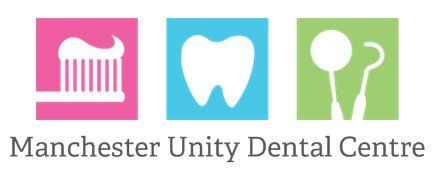Do you clench or grind your teeth, or have facial pain, clicking jaw joint, or headaches? Occlusal splint therapy and BOTOX® treatment - Melbourne
Book NowAt Manchester Unity Dental, you have access to problem-focused care for dysfunctional disorders of the temporomandibular complex. Our dentist has undertaken special training to use Botox and equipped to diagnose and treat pain associated with the facial muscles and jaw joint (TMJ). These symptoms can be particularly debilitating, and treatment that successfully manages the pain and other related problems have proven life-changing for so many affected. If you have tried all the usual conservative advice such as rest, soft diet, etc and are ready for more active approaches, we can help you!

Facial Tension and Pain
The facial muscles, especially those related to the jaw, can be a source of ongoing pain that can become debilitating. Some individuals clench and grind their teeth, perhaps as a symptom of stress, but can also just be an innocuous habit. It is possible also to be unaware of this habit until particular attention is paid or visible signs appear usually in teeth, and it is often done while sleeping.
Chronic clenching or grinding (bruxism) of the jaws will result in thickening of certain facial muscles and as they become stronger, the activity they produce will intensify. That will lead to overuse, which will cause strain and soreness in the muscles and painful trigger points, sometimes also affecting the jaw joints and the teeth.
The treatment choices we offer include targeting the muscles at the start of the chain of activity and associated problems, as well as physical intervention of night time bruxism which also gives protection of teeth from damage that results from prolonged high physical stress and strain that takes place if left uncontrolled.
Headaches
As the muscles and jaw joint are all intimately connected with the rest of the head, headaches can result from unreleased trigger points in the overactive jaw muscles or in other connected muscles. Headaches caused by joint dysfunction or facial muscle tension can be relieved or reduced effectively with targeted professional treatment here at Manchester Unity Dental.
Tooth wear
Excessive wearing of the chewing surfaces of your teeth is another undesired effect of bruxism. Teeth will become shorter in appearance, ageing the face, and can also become sensitive as the nerves inside the teeth become closer to the surface. In extreme cases, the nerve (pulp tissue) will become exposed, resulting in dental infection and severe toothache. Another undesirable outcome is tooth fracture or splitting, which would be painful and may mean the loss of your tooth.
Jaw joint (temporomandibular joint) dysfunction - TMD
The temporomandibular joint (TMJ) is a complicated structure and is attached to many muscles, tendons and nerves. Pain or clicking can indicate problems in the joint and can cause problems and pain elsewhere.
Treatment
There are various therapies and treatments available to manage these related and increasingly common problems. On top of the usual advice of conservative management (eg taking pain medications as needed, which is sometimes all the time, soft diet, warm compress, rest), which are certainly valid, we also offer proactive and demonstrably effective treatments.
These include:
These include:
- Occlusal splint (night guard/ bite plane) – for protection and dysfunction intervention
- Muscle treatment with BOTOX® injections – targets and releases trigger points directly and reduces strength of overworked muscle
- Adjustment of bite via specific tooth modifications – to remove bite interferences to the jaw motion
- Dental rehabilitation in cases of severely broken down or missing teeth – restores the facial structure by reconstructing worn out and damaged teeth
